BMW 5 Series Saloon vs VW Passat - Differences and prices compared
Compare performance (727 HP vs 272 HP), boot space and price (50800 £ vs 36500 £ ) at a glance. Find out which car is the better choice for you – BMW 5 Series Saloon or VW Passat?
Costs and Efficiency:
Price and efficiency are key factors when choosing a car – and this is often where the real differences emerge.
VW Passat has a evident advantage in terms of price – it starts at 36500 £ , while the BMW 5 Series Saloon costs 50800 £ . That’s a price difference of around 14366 £.
Fuel consumption also shows a difference: VW Passat manages with 1.20 L and is therefore decisively more efficient than the BMW 5 Series Saloon with 2.10 L. The difference is about 0.90 L per 100 km.
As for electric range, the VW Passat performs evident better – achieving up to 135 km, about 30 km more than the BMW 5 Series Saloon.
Engine and Performance:
Power, torque and acceleration are the classic benchmarks for car enthusiasts – and here, some clear differences start to show.
When it comes to engine power, the BMW 5 Series Saloon has a convincingly edge – offering 727 HP compared to 272 HP. That’s roughly 455 HP more horsepower.
In acceleration from 0 to 100 km/h, the BMW 5 Series Saloon is convincingly quicker – completing the sprint in 3.50 s, while the VW Passat takes 5.80 s. That’s about 2.30 s faster.
There’s no difference in top speed – both reach 250 km/h.
There’s also a difference in torque: BMW 5 Series Saloon pulls significantly stronger with 1000 Nm compared to 400 Nm. That’s about 600 Nm difference.
Space and Everyday Use:
Beyond pure performance, interior space and usability matter most in daily life. This is where you see which car is more practical and versatile.
Both vehicles offer seating for 5 people.
In curb weight, VW Passat is somewhat lighter – 1573 kg compared to 1800 kg. The difference is around 227 kg.
In terms of boot space, the VW Passat offers evident more room – 690 L compared to 520 L. That’s a difference of about 170 L.
When it comes to payload, BMW 5 Series Saloon barely noticeable takes the win – 600 kg compared to 577 kg. That’s a difference of about 23 kg.
Who wins the race in the data check?
The BMW 5 Series Saloon is clearly superior overall in the objective data comparison.
This result only shows which model scores more points on paper – not which of the two cars feels right for you.
Costs and Consumption
View detailed analysis
Engine and Performance
View detailed analysis
Dimensions and Body
View detailed analysis
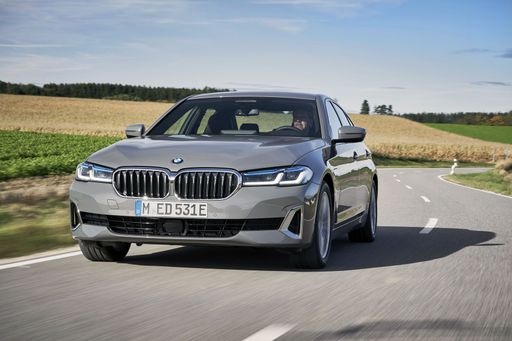
BMW 5 Series Saloon
BMW 5 Series Saloon
The BMW 5 Series Saloon blends executive poise with a driver's instinct, delivering a supple, refined cabin and a chassis that prefers composed authority over bravado. For buyers who want a grown-up commuter that still enjoys a twisty road, it’s the kind of car that keeps your colleagues impressed and your weekend grin intact.
details
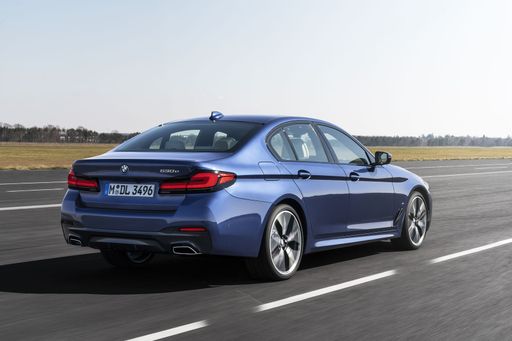
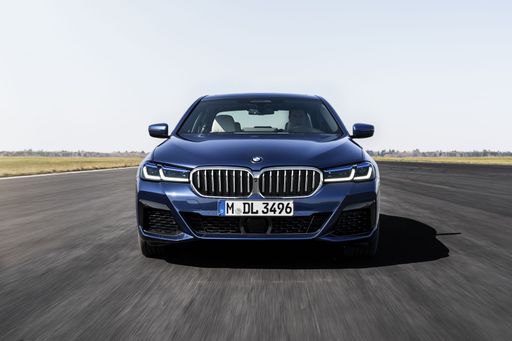
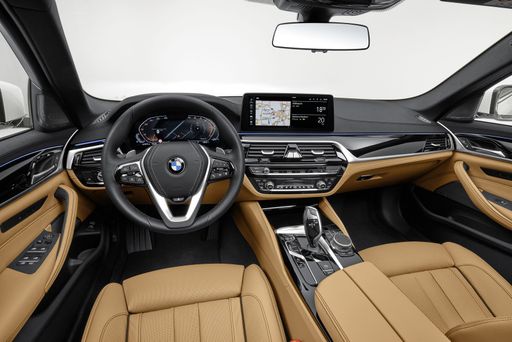
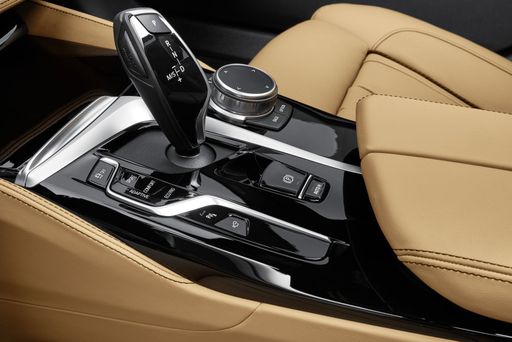
VW Passat
The VW Passat is the grown-up family car that gets the basics absolutely right — roomy, comfortable and built to handle weekday commutes and weekend getaways without fuss. It won't set your pulse racing, but its calm composure and sensible packaging make it boring in the best possible way: a dependable, no‑drama choice for buyers who value practicality over flash.
details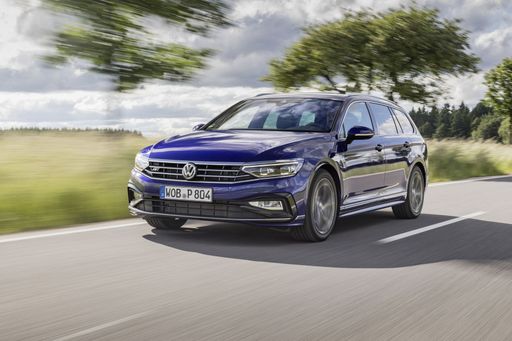
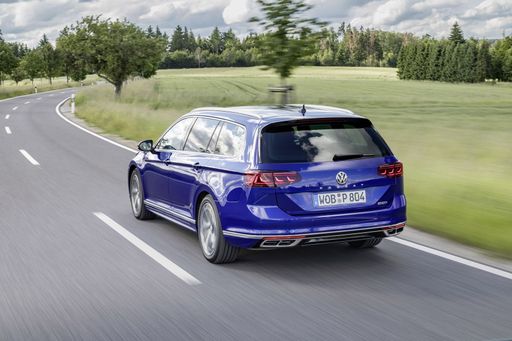
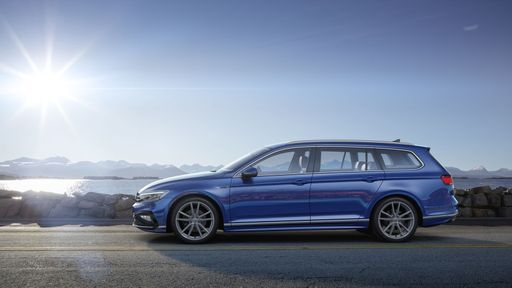
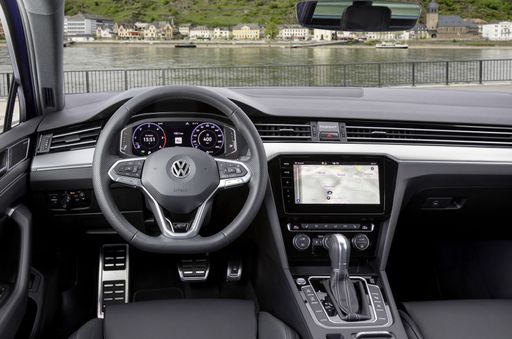
Costs and Consumption |
|
|---|---|
|
Price
50800 - 124500 £
|
Price
36500 - 58500 £
|
|
Consumption L/100km
2.1 - 5.8 L
|
Consumption L/100km
1.2 - 8 L
|
|
Consumption kWh/100km
-
|
Consumption kWh/100km
-
|
|
Electric Range
67 - 105 km
|
Electric Range
124 - 135 km
|
|
Battery Capacity
19 - 19.4 kWh
|
Battery Capacity
19.70 kWh
|
|
co2
48 - 152 g/km
|
co2
28 - 181 g/km
|
|
Fuel tank capacity
60 L
|
Fuel tank capacity
45 - 66 L
|
Dimensions and Body |
|
|---|---|
|
Body Type
Sedan
|
Body Type
Estate
|
|
Seats
5
|
Seats
5
|
|
Doors
4
|
Doors
5
|
|
Curb weight
1800 - 2515 kg
|
Curb weight
1573 - 1858 kg
|
|
Trunk capacity
466 - 520 L
|
Trunk capacity
510 - 690 L
|
|
Length
5060 mm
|
Length
4917 mm
|
|
Width
1900 - 1970 mm
|
Width
1849 mm
|
|
Height
1515 mm
|
Height
1521 mm
|
|
Max trunk capacity
-
|
Max trunk capacity
1770 - 1920 L
|
|
Payload
425 - 600 kg
|
Payload
501 - 577 kg
|
Engine and Performance |
|
|---|---|
|
Engine Type
Diesel MHEV, Petrol MHEV, Plugin Hybrid
|
Engine Type
Petrol, Petrol MHEV, Diesel, Plugin Hybrid
|
|
Transmission
Automatic
|
Transmission
Automatic
|
|
Transmission Detail
Automatic Gearbox
|
Transmission Detail
Dual-Clutch Automatic
|
|
Drive Type
Rear-Wheel Drive, All-Wheel Drive
|
Drive Type
All-Wheel Drive, Front-Wheel Drive
|
|
Power HP
197 - 727 HP
|
Power HP
122 - 272 HP
|
|
Acceleration 0-100km/h
3.5 - 7.5 s
|
Acceleration 0-100km/h
5.8 - 10.7 s
|
|
Max Speed
225 - 250 km/h
|
Max Speed
212 - 250 km/h
|
|
Torque
330 - 1000 Nm
|
Torque
250 - 400 Nm
|
|
Number of Cylinders
4 - 8
|
Number of Cylinders
4
|
|
Power kW
145 - 535 kW
|
Power kW
90 - 200 kW
|
|
Engine capacity
1995 - 4395 cm3
|
Engine capacity
1498 - 1984 cm3
|
General |
|
|---|---|
|
Model Year
2023 - 2026
|
Model Year
2024 - 2025
|
|
CO2 Efficiency Class
D, E, B, C
|
CO2 Efficiency Class
G, D, E, B
|
|
Brand
BMW
|
Brand
VW
|
What drivetrain options does the BMW 5 Series Saloon have?
Available configurations include Rear-Wheel Drive or All-Wheel Drive.
